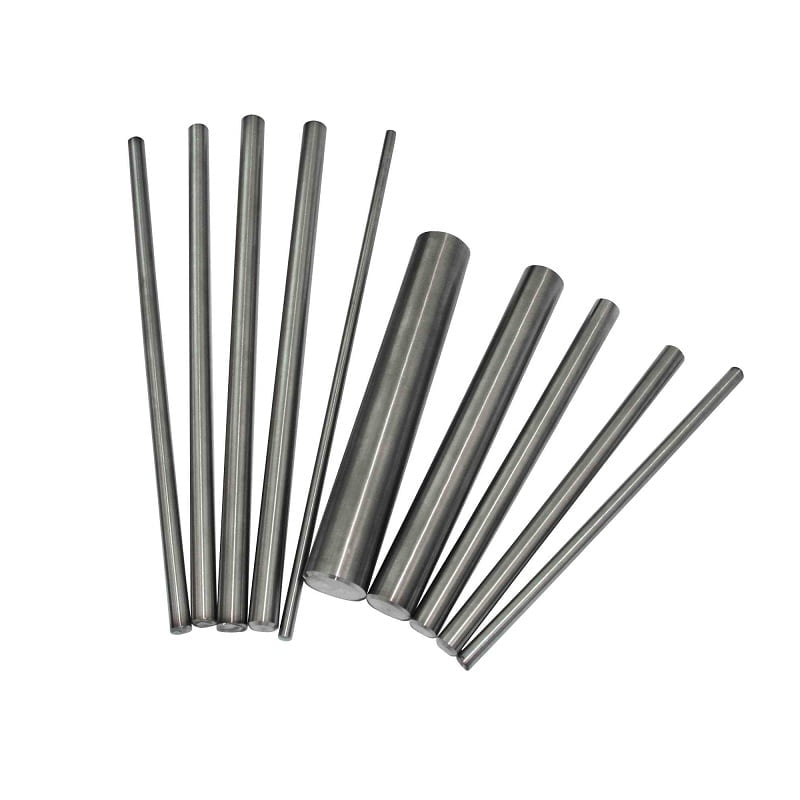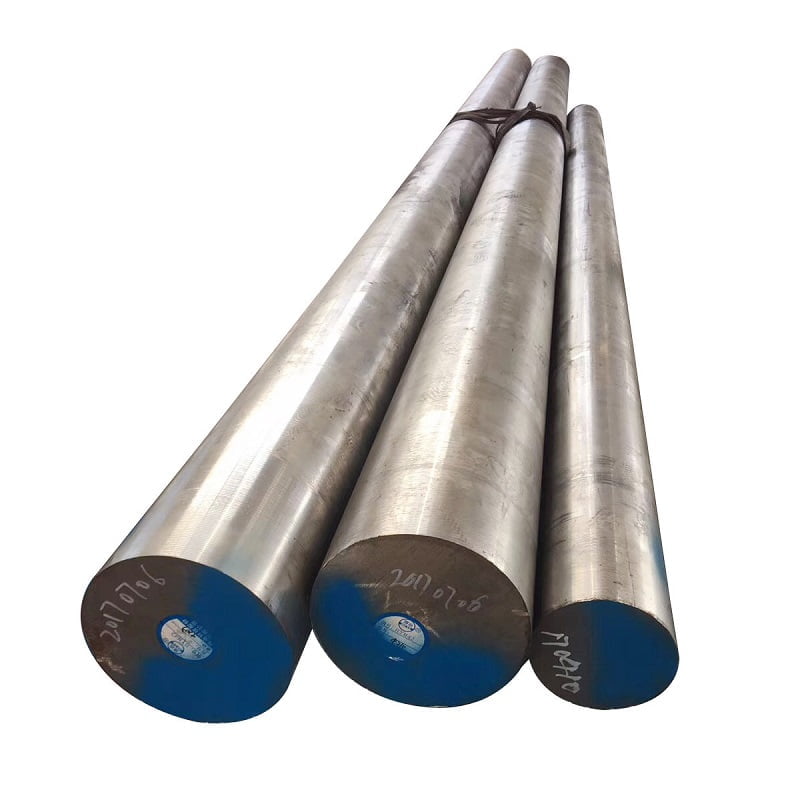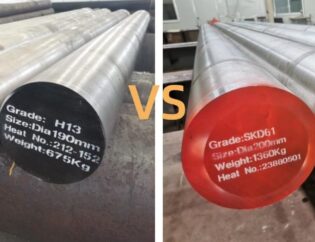
Steel grades are essential to various engineering and manufacturing applications, with each type offering unique properties that make it suitable for specific uses. This comparison explores 12L14 and 4140 steel to highlight their differences in composition, mechanical properties, applications, heat treatment capabilities, weldability, and cost.
Overview of 12L14 Steel
12L14 is a low-carbon steel that is known for its excellent machinability. It is commonly used in industries where precision machining is critical for producing high-quality components.
Chemical Composition of 12L14 Steel
The chemical composition of 12L14 is vital for its machinability and overall performance. The typical composition is as follows:
| Yếu tố | Thành phần (%) |
|---|---|
| Cacbon (C) | ~0.12% |
| Mangan (Mn) | ~0.60% |
| Phốt pho (P) | ~0.04% |
| Lưu huỳnh (S) | ~0.26% |
| Lead (Pb) | ~0.15% |
Lead is added to enhance machinability, making this steel grade particularly user-friendly for precision machining applications.
Mechanical Properties of 12L14 Steel
The mechanical properties of 12L14 play a crucial role in its applications. Here are its key properties:
| Tài sản | Giá trị |
|---|---|
| Sức căng | 58,000 – 75,000 psi |
| Sức mạnh năng suất | Approximately 38,000 psi |
| Độ cứng | Approximately 85 HRB |
| Khả năng gia công | Xuất sắc |
| Độ dẻo | Good for low to moderate stress applications |
Applications of 12L14 Steel
Due to its exceptional machinability, 12L14 is commonly used in applications that require precision machining. Common uses include:
| Application Type | Sự miêu tả |
|---|---|
| Bộ phận gia công chính xác | Components requiring tight tolerances, such as fittings and valve bodies. |
| Chốt | Suitable for screws and bolts due to ease of machining. |
| Bánh răng | Used for lower-load gears in various machinery. |
| Hydraulic Components | Ideal for hydraulic fittings and components with consistent dimensions. |

Overview of 4140 Steel
4140 steel is a medium-carbon alloy steel known for its strength, hardness, and excellent wear resistance. It is frequently used in high-stress applications that require durability and toughness.
Chemical Composition of 4140 Steel
The chemical composition of 4140 is designed to provide enhanced strength and resistance. The typical composition includes:
| Yếu tố | Thành phần (%) |
|---|---|
| Cacbon (C) | 0.38 – 0.43% |
| Mangan (Mn) | 0.60 – 0.90% |
| Crom (Cr) | 0.80 – 1.10% |
| Molypden (Mo) | 0.15 – 0.25% |
| Phốt pho (P) | ≤0.04% |
| Lưu huỳnh (S) | ≤0.05% |
The additional alloying elements such as chromium and molybdenum improve the steel’s hardenability and wear resistance.
Mechanical Properties of 4140 Steel
4140 steel exhibits outstanding mechanical properties that lend it well to high-performance applications. Here are its key properties:
| Tài sản | Giá trị |
|---|---|
| Sức căng | 90,000 – 100,000 psi |
| Sức mạnh năng suất | Approximately 60,000 psi |
| Độ cứng | Up to 50 HRC (heat-treated) |
| Khả năng gia công | Vừa phải |
| Độ dẻo | Good, especially in the annealed condition |
Applications of 4140 Steel
Due to its strength and toughness, 4140 steel is widely used in applications that demand high performance and durability. Common uses include:
| Application Type | Sự miêu tả |
|---|---|
| Trục | Used in power transmission components that require resistance to wear and deformation. |
| Bánh răng | Suitable for high-load gear applications, often heat treated for additional strength. |
| Crankshafts | Commonly used in automotive applications due to its toughness and fatigue resistance. |
| Heavy-duty Fasteners | Ideal for applications needing high tensile strength and durability. |
Khả năng gia công
Machinability refers to how easily a material can be cut and shaped during machining processes, which significantly influences production efficiency.
| Tính năng | Thép 12L14 | 4140 Steel |
|---|---|---|
| Ease of Machining | Excellent; lead content enhances cutting and reduces tool wear. | Moderate; requires precise machining techniques and may result in increased tool wear. |
The ease of machining in 12L14 means it is often preferred for high-volume production of small parts, while 4140 may require greater care and special tools.
Heat Treatment Capabilities
Heat treatment plays a crucial role in enhancing the properties of steel, particularly for applications that demand high strength and hardness.
| Tính năng | Thép 12L14 | 4140 Steel |
|---|---|---|
| Xử lý nhiệt | Generally not heat-treated; used in as-rolled condition to retain machinability. | Highly heat-treatable, allowing for processes like quenching and tempering to improve hardness and strength significantly. |
4140’s ability to be heat-treated allows it to excel in applications where high strength and wear resistance are critical.
Khả năng hàn
Weldability is an essential characteristic that affects how easily different steel grades can be welded together during fabrication.
| Tính năng | Thép 12L14 | 4140 Steel |
|---|---|---|
| Đặc điểm hàn | Not recommended for welding due to lead, which can compromise weld integrity. | Can be welded, though preheating is often necessary to minimize cracking; suitable welding techniques and fillers should be used. |
The lack of weldability in 12L14 can limit its applications in certain design scenarios where welding is required, while 4140 offers more versatility in fabrication.
Cost and Availability
Cost and availability can be significant factors influencing the choice of steel in manufacturing processes.
| Tính năng | Thép 12L14 | 4140 Steel |
|---|---|---|
| Tốc độ dao động từ bảy mảnh mỗi phút đối với máy âm lượng thấp đến | Typically more expensive due to lead and alloying elements, although savings may arise from its machinability. | Generally less expensive than 12L14; available in various forms and tends to have a wide market presence due to its versatility. |
4140’s availability in different sizes and shapes makes it an attractive choice for a variety of engineering applications.
Summary and Conclusion
Comparing 12L14 and 4140 steel reveals significant differences that make each suitable for distinct applications.
| Tính năng | Thép 12L14 | 4140 Steel |
|---|---|---|
| Primary Attributes | Excellent machinability, low carbon | High strength, heat-treatable, medium-carbon alloy |
| Thành phần hóa học | Low carbon; lead enhances machinability | Medium carbon; chromium and molybdenum improve strength |
| Tính chất cơ học | Moderate tensile and yield strength | High tensile strength and hardness |
| Các ứng dụng | Precision parts, fasteners, hydraulic components | Shafts, gears, automotive components |
| Khả năng gia công | Superior due to lead content | Moderate, needs precision techniques |
| Xử lý nhiệt | Not typically heat-treated | Can be heat treated for improved properties |
| Khả năng hàn | Not suitable for welding | Can be welded with appropriate techniques |
| Cost and Availability | Higher cost, specialized machining materials | More economical, widely available |
In conclusion, the choice between 12L14 and 4140 steel depends on specific project requirements, such as whether precision machining or high strength is the priority. Each steel grade has its advantages and limitations, making it essential for engineers and manufacturers to assess their needs before selecting the appropriate material. If you have further questions or need additional information, feel free to ask!

